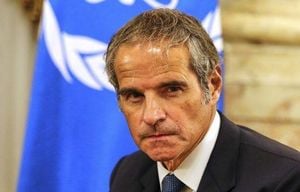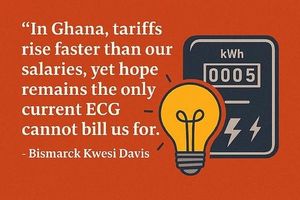The economic climate in Russia is becoming increasingly strained as record high inflation coincides with significant food shortages. Recent reports reveal stark insights from analysts and economists on the dire state of the nation’s agricultural sector and consumer market.
According to analysts from EastFruit, the prices of fruits and vegetables have skyrocketed, feeding directly back to the high inflation rate gripping the country. The Russian government, led by President Vladimir Putin, is desperately trying to combat this inflation by implementing harsh economic measures, including raising the key interest rate to a staggering 21%. Despite these efforts, crops like cucumbers and potatoes are now at historically high prices, creating unease about what the winter months may bring.
Lately, cucumbers have taken the lead among price surges, with wholesale prices nearly tripling compared to last year. For now, the wholesale price sits at about 500 rubles per kilogram (around $5 USD), and if the inflationary trend continues, we might see prices climb even higher as the peak season approaches. Generally, cucumber prices hit their peak around February, and with the lack of imports due to international isolation, there’s worry this winter could mirror or exceed last year’s spike.
Potatoes are following closely behind cucumbers, having seen prices soar by 2.5 times within the year. Between November and the New Year, potatoes have already jumped by 60%, indicating severe supply shortages. This trend suggests consumers might face prices increasing to 320% by next spring, raising fears for household budgets.
Fruit prices have also felt the pinch, with the cost of mandarins doubling year-over-year—a staple product during the autumn and winter months. Any significant price hikes might result from the continued decline of the Turkish lira, affecting imports. Apples have seen their prices increase by 40%, driven chiefly by the prevalence of substandard local production. With few alternatives available, especially due to trade bans with countries like Belarus, the stage is set for significant increases.
On the wider economic front, supermarkets are resorting to locking up butter and other staple items due to theft as inflation causes widespread panic among consumers. The figures tell part of the story: some prices have surged nearly 25% compared to last year, with overall inflation approaching 10%. This alarming rate of inflation is being fueled by rising wages across the country stemming from increased military spending, necessitated by Russia's involvement and continuing conflict with Ukraine.
The inflationary pressures are compounded by high labor costs as competition for workers within non-defense sectors intensifies. Due to the loss of labor to the military, companies outside those sectors must raise wages to attract employees. Alexandra Prokopenko of the Carnegie Russia Eurasia Center pointed out, “Prices are rising because of the war.” The net effect is prices for everyday consumer goods continuing to rise, linking back to the economic dynamics at play driven by military spending.
The Kremlin’s military budget is reportedly set to increase by nearly 25% by 2025, accounting for one-third of the federal budget, and disrupting the typical economics of social spending and economic growth. Analysts predict this could lead to more companies facing bankruptcy due to the increased rate on loans and difficult market conditions—a troubling trend for the already shaky economy.
Despite this tension, some economists argue against the notion of a crisis. They believe structural reserves and state commodities could temporarily buffer the economy from complete collapse. Russia has still seen GDP growth, projected at 3.6% for the year, which puts it above the U.S. forecast. This disparity is due in part to the inflated demand for energy exports and the government's ability to manipulate market conditions domestically.
Even as sanctions from the West continue to alienate Russian business from international markets, the country has adapted, relying on alternative trade routes to import necessary goods and circumvent the limitations of sanctions. Economic resilience, as rusty as it may be, is showing through increased domestic consumption as citizens opt for local vacation spots due to international travel restrictions.
This has created thirst for services domestically available, propelling overall national income. Wage hikes—partly due to military enlistment incentives—have resulted in more cash circulating among families and consumers, correlated to consumer spending patterns shifting dramatically during the current climate.
According to International Monetary Fund stats, disposable incomes adjusted for inflation rose 5.8% last year. Hanseatische Bank’s latest report echoes this sentiment, deeming the current state of the Russian economy as one of growth but with major drawbacks since the gains are not translating to broad social improvements.
Prokopenko says, “With favorable commodity revenues, the Kremlin’s continued ability to fund military endeavors is likely set to persist.” A steady flow of revenue from energy exports allows for the funding of public service projects which critics deem are not yielding significant returns. Overall, the country is at the cusp of transformation, but underlying issues remain unaddressed.
Whether or not the current trends and policies will lead to real economic stability remains to be seen. The burden of inflation and food shortages raises questions about the Russian populace's long-term economic resilience as they navigate through these challenging circumstances.
True change will require more than just policy adjustment; it will demand active engagement across multiple sectors to revitalize job growth and stabilize the domestic market. About the only thing we know for sure—unless changes are made, economic volatility is likely to persist for the foreseeable future.



